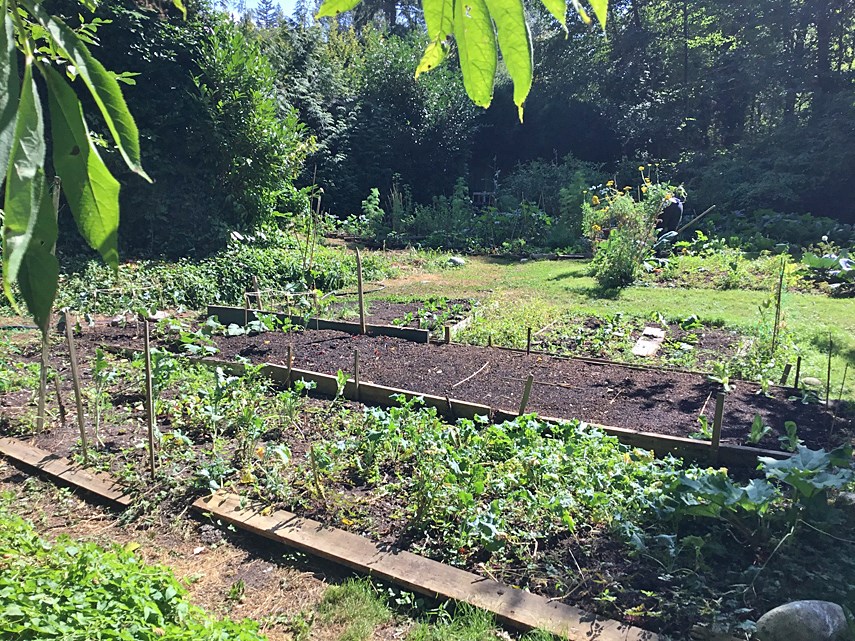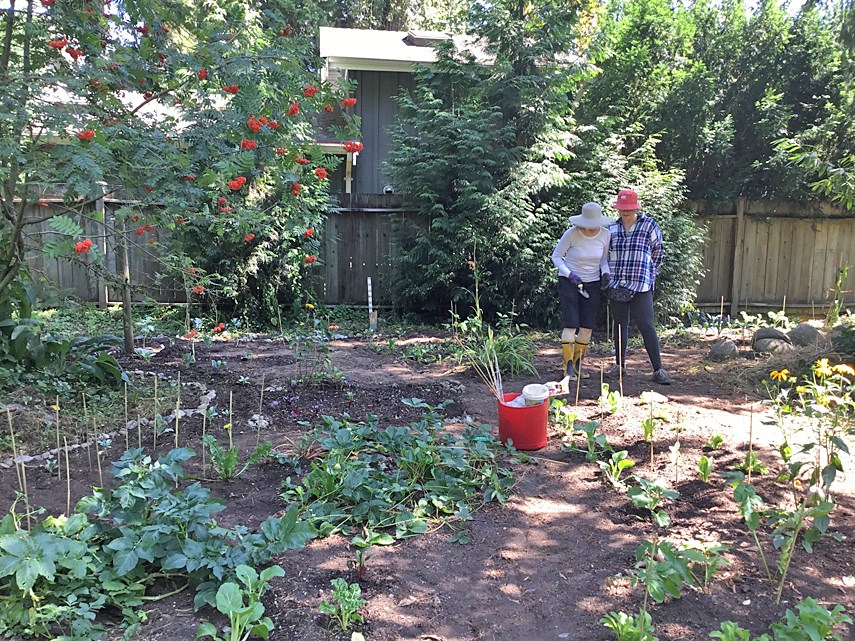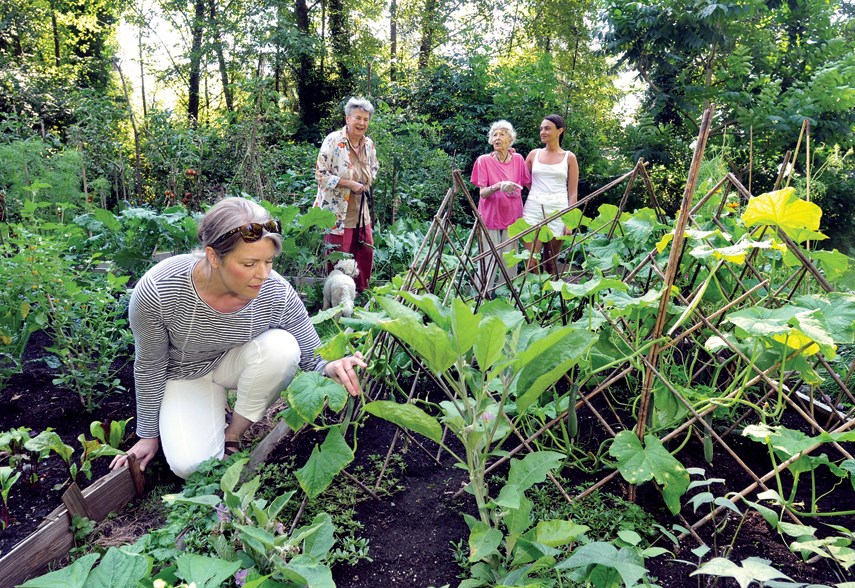While her property is no longer the bustling farmstead she enjoyed while growing up, there’s still plenty of growing going on.
For the past decade, Darrell de la Mare has allowed some people in the community to use part of her approximately one-acre lot on Mount Seymour Parkway so they could grow their own gardens, sow their own seeds, and enjoy a slice of the good life.
“I’ve just turned it over to them,” says de la Mare.
Like many North Shore lifers, de la Mare’s seen some changes in her time.
Her grandparents first bought the property in the 1930s. They used it mainly as a recreation property back then and would ferry over to enjoy North Vancouver’s lush scenery, hunkering down in an old cottage they’d built on the property adjacent to the Seymour River and near what’s now Maplewood Creek Park.
When de la Mare’s mom and dad married 10 years later, they built the house where she still lives to this day.
Recalling those halcyon days on the property, full of ample vegetation, free-ranging chickens and noble steeds, de la Mare notes that nothing lasts forever. Mount Seymour Parkway is now a four-lane major thoroughfare that years ago sliced off a chunk of her property. And while there’s still a paddock, she no longer has any horses.
But there's still plenty going on.

Ten years ago, de la Mare had an idea. She put out a call online to see if anyone was interested in using some of her abundant greenspace for their own purposes. She had more than enough space, she reasoned, and, crucially, years of having horses on the property had created fertile soil, she explains.
“Without having somebody growing their veggies and everything, the invasive plants just overtake it,” she says. “It’s where the horse paddock was, so the soil’s fairly good.”
That fact and de la Mare’s generosity wasn’t lost on people in the community, many of whom didn’t have access to a greenspace or hadn’t been able to acquire a plot in one of the more formal non-profit or municipally organized community gardens on the North Shore.
This year, de la Mare has eight people gardening and growing on her former horse paddock. There’s people in their 30s and 40s, a neighbour in her 90s, and even some children this year, all busy plying green thumbs to dark brown soil in order to grow food and flora, and enjoy nature.
“They asked if I minded if they built a treehouse in the wild parts,” de la Mare says of the two young'uns. And: “My dear neighbour further up the road, she’s 90, and her place doesn’t get enough sun and she’s gardening and growing veggies, along with her daughter and granddaughter.”
West Vancouver resident Megan Gray was one of the originals who answered de la Mare’s callout 10 years ago.
At the time, Gray aspired to start a small business growing wheatgrass that would have required the use of a greenhouse, which she thought could make an excellent addition to de la Mare’s property.

Although a greenhouse never materialized, an awesome community garden did, says Gray, who still maintains a plot with her sister at de la Mare’s property where they grow cabbages, cucumbers, beets, lettuce, tomatoes and bucket-loads of other goodies.
These days, Gray and her sister are able to grow enough food every season to sustain themselves for at least half the year, she says, noting it’s because of de la Mare's generosity they’re able to attain this level of self-sufficiency.
“She’s wonderful. She has a great spirit about her and you can tell that she’s been raised there,” says Gray. “You’ll find her up on a ladder trimming trees. She’s super active. That spirit of being outside and enjoying nature is something I think she really enjoys being a part of.”
De la Mare has seen many people come to her property in the decade she’s opened it up as a community garden.
She plans to continue being open and generous with her space for the foreseeable future, she says. Besides, it's reminiscent of the way she grew up over here, where the land was enjoyed by many and it had much to offer.
“I just know that people are looking for places. As North Van grows, there’s fewer and fewer areas like this,” she says. “It’s just nice having them out there and it’s nice for them to have somewhere to come.”



